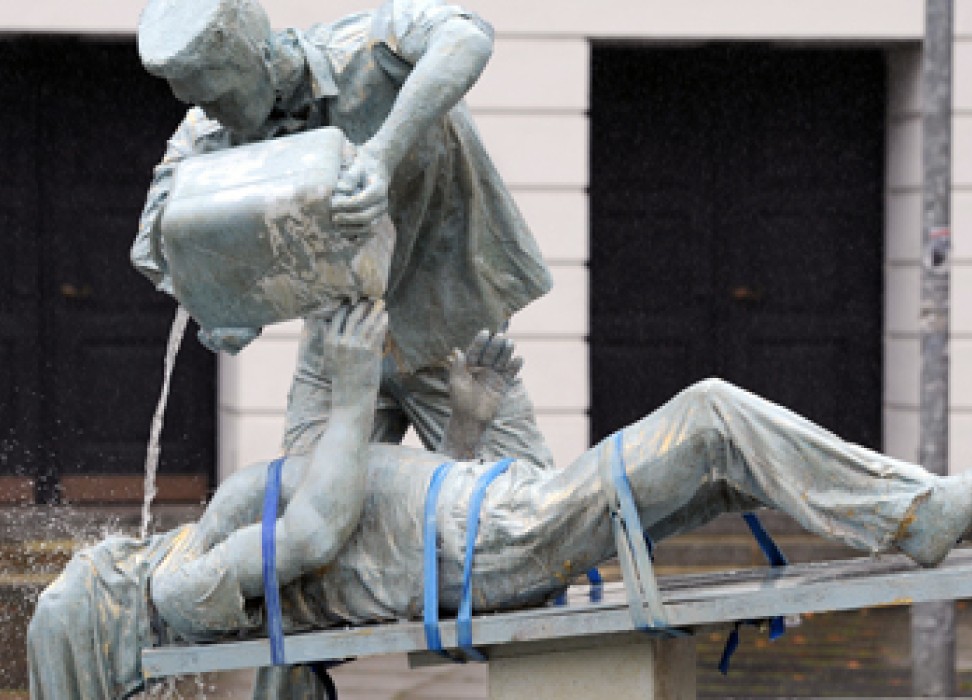Torture during interrogations – Illegal, immoral and ineffective
11 October 2017

“Torture produces corrupted information. It is more than ineffective – it is counterproductive. This corrupted information leads to flawed decisions and policies at the highest levels – and we have lost lives because of those flawed decisions,” said Mark Fallon.
Fallon would know. As a former counterterror official for the United States Government, he saw first-hand the impact of flawed information elicited through torture. Fallon was speaking at a high-level event on torture at the UN General Assembly in New York. The event cast a spotlight on the illegal, immoral and ineffective use of torture in interrogations.
“If you are coercive, or if you are abusive, you might get information. It may be the information you want but it may not necessarily be the truth,” Fallon said.
Also addressing the event was Nina Holm Andersen, the lead investigative interviewer of Anders Breivik, who in 2011 carried out a terrorist attack in Norway killing 77 people. She stressed that empathy – not sympathy – were key in interviewing suspects, particularly when there is a “ticking time bomb scenario” where the suspect creates the impression that another attack is imminent.
“With Breivik, it was important for me to establish rapport, and to make sure he felt he was taken seriously,” she said. Creating a safe and comfortable environment for suspects renders them more talkative and increases the likelihood that they will reveal incriminating information and a more complete account of what they have done and how. Investigators are thus able to obtain more reliable, actionable information.
Andersen relies on the Investigative Interviewing Model, which gives practical tips on interviewing suspects without resorting to torture or other ill-treatment. This interviewing model relies on the use of open questions to improve the flow of communication and information and having well-prepared questions to avoid misunderstanding and ambiguities. The interview technique has different stages, including planning and preparation, introduction and building rapport, first free account, closure of the interview and evaluation. These steps not only prevent abusive practices but also improve the collection and reliability of information.
Shane O’Mara, a professor of experimental brain research at Trinity College, Dublin, has done extensive research that proves that the use of torture makes captives more likely to confess untruthful and inaccurate information. The ‘stressors’ experienced during interrogations make them so confused that they are unable to distinguish fact from fantasy. Captives therefore tell their interrogators what they want to hear so that the torture would stop.
UN High Commissioner for Human Rights Zeid Ra’ad Al Hussein said that as far back as 1798, Napoleon Bonaparte barred his generals from using torture because he knew that it did not work. However, its use prevails in countries across the world. Zeid also warned against the use of torture as it “creates enormous rage among the larger communities” of the detainees who are subjected to this inhumane, illegal practice.
“By feeding the desire for vengeance, torture produces more hatred and more violence,” he said.
Assistant Secretary-General for Human Rights Andrew Gilmour said the UN Human Rights Office is planning to create a Manual on Investigative Interviewing with the UN Department of Peacekeeping Operation’s Police Division. The Convention against Torture Initiative and the Norwegian Centre for Human Rights are also preparing guidance on investigative interviewing that does not rely on threats and brutality.
The use of torture and the ill-treatment of detainees are strictly prohibited by the UN Convention against Torture and Other Cruel, Inhuman or Degrading Treatment or Punishment.
ENDS
11 October 2017


